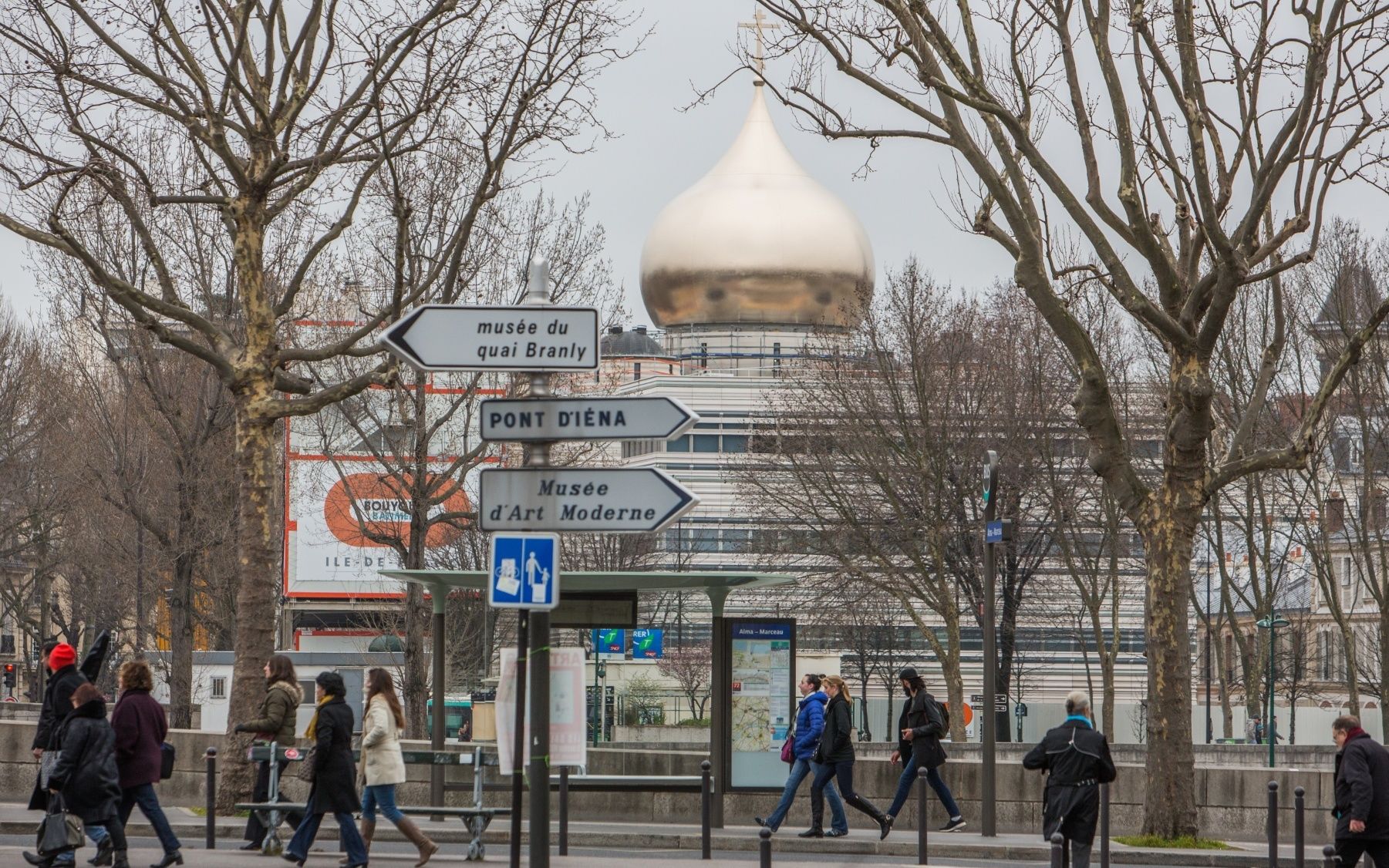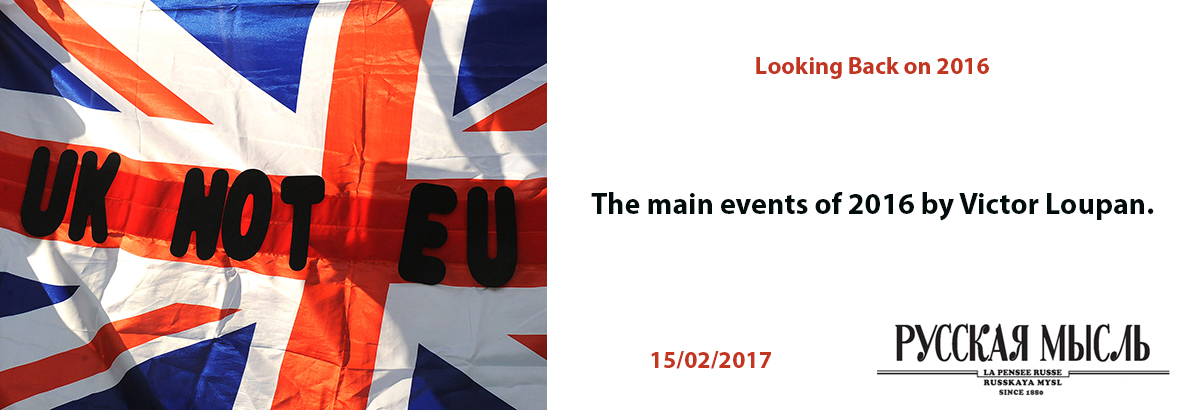Victor Loupan, Head of the Editorial Board
It appears that 2016 has proved crucial for civilization .
The passing year has been full of surprises and events of the most varied kind: in politics, international relations, and in culture. Some will say this is: ‘as always’ and ‘it’s the same every year.’ Sorry, but I do not agree! It is neither ‘as always’ nor ‘a year like any other’.
On the contrary, each year is very different. There are years of war and years of peace, boring and interesting years, unhappy and happy years, years of crisis and gain. It appears that 2016 is an astonishingly crucial year, one could say, for civilization itself.
Let us now start our short list with the final and probably the most important of this year’s events: the election of Donald Trump as President of the USA.
Trump is President
The victory of Donald Trump in the presidential election is not simply a victory. And Donald Trump is not simply a President. The point is that as soon as Trump was nominated, panic broke out in the American establishment. – For Trump does not belong to it. He is not one of ‘their own’. Yes, he is rich. Yes, he studied at prestigious universities. Yes, he constantly appears on television. But he is not one of them all the same. Throughout the Western world it is the elite that determine who belongs and who does not. The elite found something unacceptable in the temper, conduct and rhetoric of Trump. They found clear signs of ‘populism’ in his direct communication with people, and not just ‘the electorate’. What populism is, no one can say, but it is commonly thought to be bad.
At first the elite said that Trump would never win the Republican presidential nomination because the party’s leading circles strongly opposed him. But Trump did not simply receive the nomination. Notwithstanding the will of its discredited and already defeated circle of leaders, who had declared that they would not support him in any case, he won a knockout victory. And this is unprecedented!
Unlike Trump, his main rival, Hillary Clinton, was supported by all the elites of the political, economic, intellectual and cultural spheres, and in the media. She was supported even by those who claimed to be her opponents: the leaders of the Republican Party. Seventy-seven of eighty major American media companies openly declared their support for Hillary Clinton, thus declaring war on Donald Trump. So he found himself in total isolation outside the ruling circles, but at one with the people. Trump’s campaign rallies gathered huge, enthusiastic crowds. And, gifted with eloquence (unlike his rival), he inflamed the audience with his politically incorrect rhetoric, with his unrestrained energy, and undisguised criticisms of: Washington, Hillary Clinton, the Democratic Party and even of his fellow party members.
Feeling that they were losing the very ground under their feet, Clinton and her camp resorted to Black PR. They even called Trump ‘an agent of Putin’. And on the very day of the elections the completely discredited newspaper, The New York Times, announced that Hillary Clinton had an eighty-two per cent chance of winning. But only two hours had passed when it turned out that the outcome was contrary to their expectations.
The collapse of the ‘Clinton clan’ is accompanied by that of the American mass media which has lost its authority in the eyes of the readers, TV viewers and radio listeners. It is also accompanied by the collapse in authority of the intellectual elites, who, following Trump’s victory, not only understood nothing but also began to make clumsy excuses, and dug themselves even deeper into a pit of nonsense and shame. When an elite no longer understands the people and loses touch with reality, it usually signals a change of order, the beginning of a new epoch, and the assumption of power by a new ruling class which is not blinded by its own prejudices.
All of this turns Trump’s victory into a cultural revolution rather than a political one. Yet it is difficult to say with certainty what it will lead to. But one thing is clear: Trump’s victory fits into the current trend towards populism which is on the rise in all the so-called ‘Western democracies’.
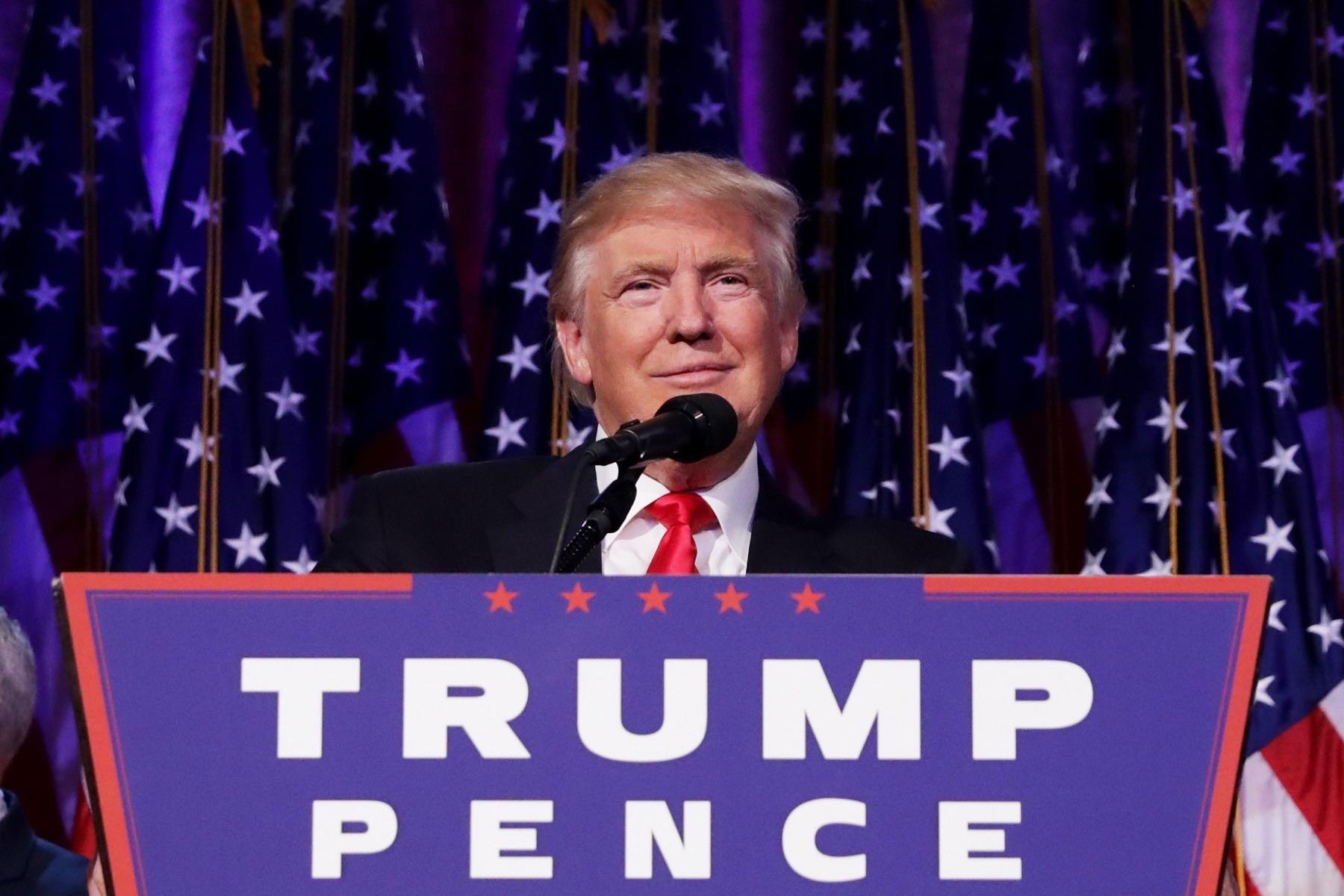
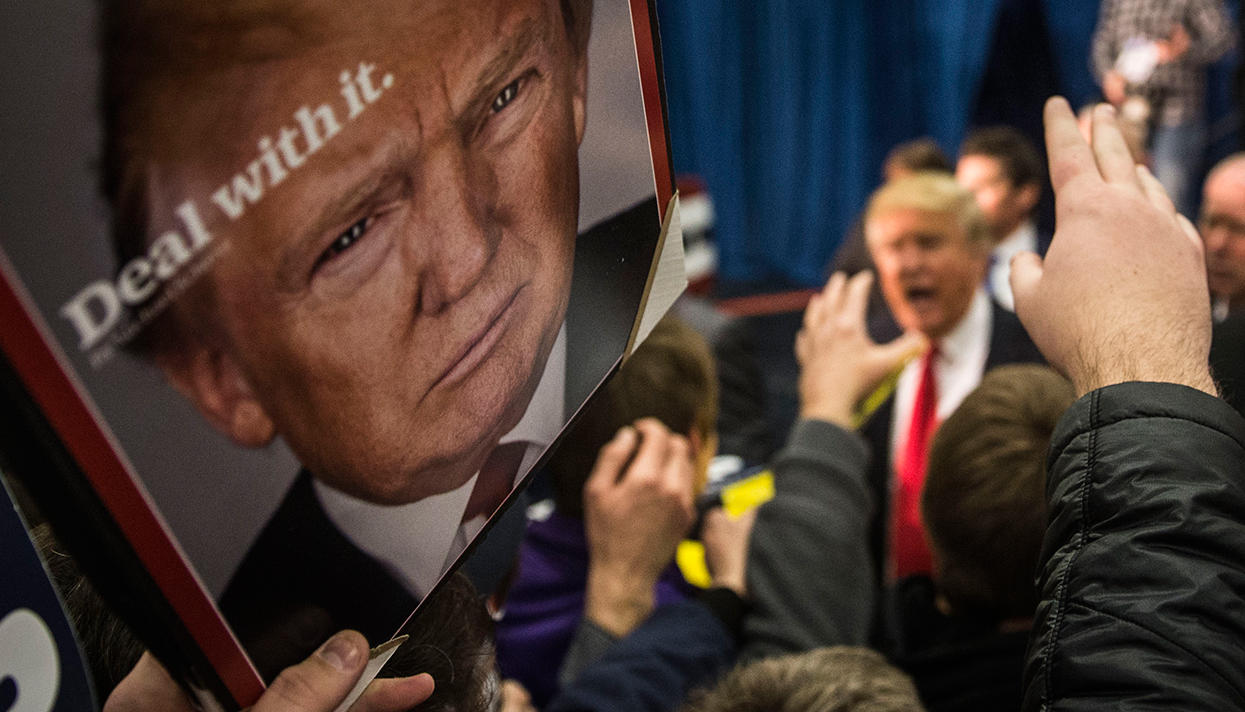
Brexit
The shocking victory of Trump was preceded by the no less shocking victory of the Eurosceptics in the referendum in Great Britain. There also, after voting had closed but before the votes had been counted, BBC Radio prematurely announced the ‘defeat’ of the Brexit supporters. It was a defeat in which none of the establishment of London and Brussels had any doubt.
In Great Britain, the political, economic and intellectual elites, together with most of the mass media, agitated against Brexit. As it was in the USA with the election of Trump, so too in the UK with Brexit; a radical split between the elites and the people was forcefully revealed.
The landslide victory of the ‘Europhobes’ plunged the ruling elites of all the EU states into shock. The brethren were so confident of the superiority of ‘the European idea’ that they did not deign to ask people about their true aspirations. They remained indifferent to what the people think of the transformations within the EU (both internal and external) and how and why ‘Europhobia’ is growing in the EU countries hour by hour.
Brexit and the election of Donald Trump are ‘two bullets fired from the same gun’. And it is the ruling supranational apparatus, which imagines itself to be a grey eagle soaring high above the people, that was struck by these bullets. But in the eyes of the people it turned out not to be an eagle at all, but an odious vulture which deserved to be shot.
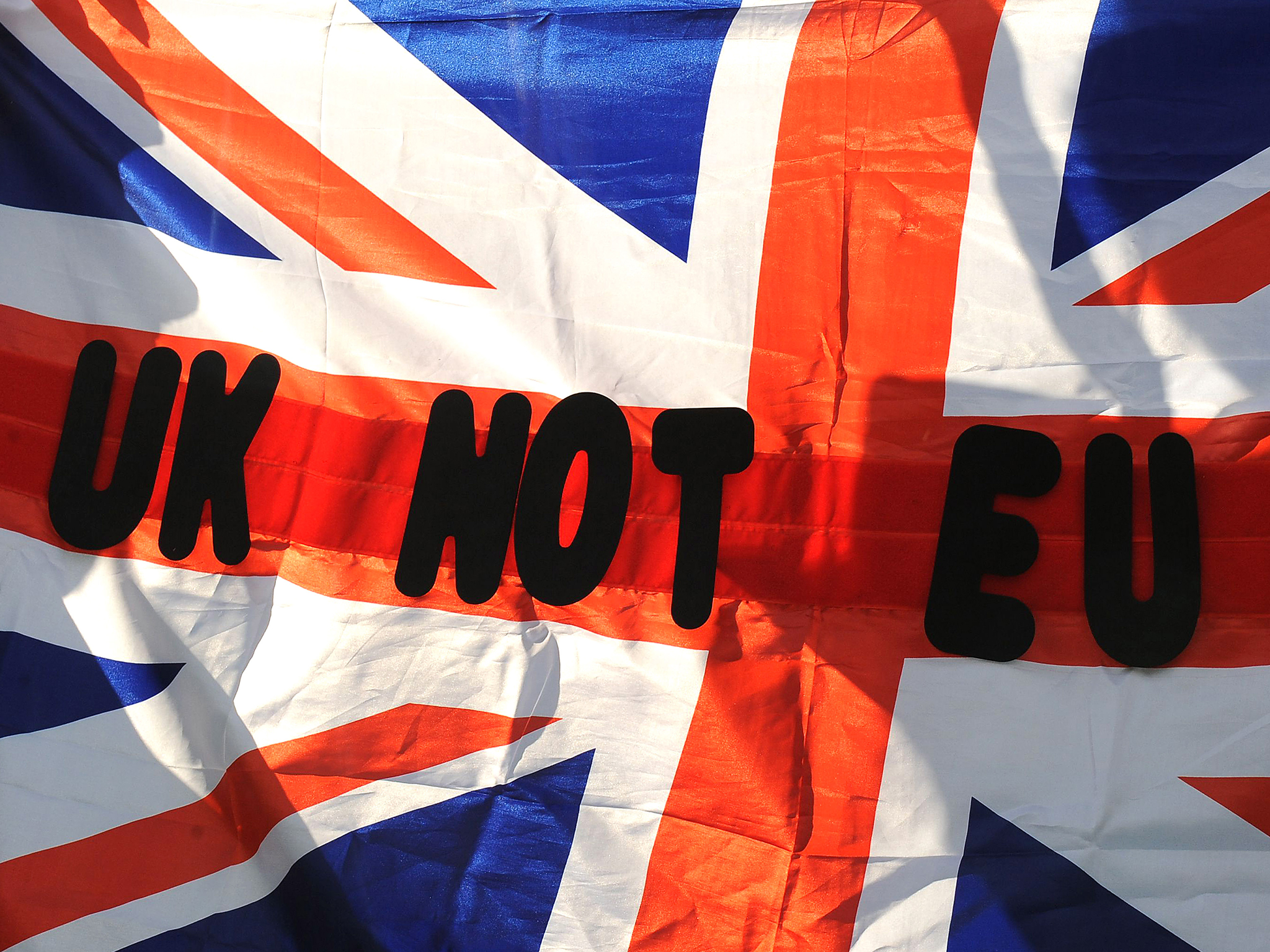
A Nobel Prize to Bob Dylan
Bob Dylan (born Robert Zimmerman) is not an ordinary songwriter or a bard. He is one of the main representatives of ‘the cultural revolution’ of the 1960s. He sings with a nasal voice, plays the guitar and the accordion poorly, and his versification can, by no means, be compared with that of great English-speaking poets, such as Wystan (W.H.) Auden and Derek Walcott (who won the Nobel Prize in Literature in 1992). But for today’s ‘youthful old folk’, Bob Dylan is the genuine living embodiment of the ‘drug utopia’ of the sixties. That utopia never became a reality, but now it is fashionable to feel nostalgic while listening to those fifty-year-old recordings. It was these sentimental ‘youthful old folk’ who awarded their hero, Bob Dylan, the Nobel Prize in Literature. They awarded it to him, not as a great writer (he is not a writer at all), but as a symbol of their unfulfilled dream which sank into oblivion together with their youth.
In doing this the Nobel Prize Committee confirmed what had long been suspected: literature means nothing to it, and the prize itself is no more than a means of manipulating people’s consciousness through mass media.
Genuinely great modern literature exists regardless of the Nobel Committee. The Committee is aware of it even if it ignores it. Formerly, the Committee sometimes ‘hit a bull’s eye’. For example, the Nobel Prizes which were awarded to Brodsky, Walcott and Naipaul were deserved. However, in most cases, the Nobel Prize in Literature is nothing but politics and demagogy. And in the case of Bob Dylan it is nonsense: it is related to nostalgia for the idealized times which are gone forever.
By the way, on 16th November the Nobel Prize winner (Dylan) announced that he would not come to the award ceremony and would not sit down at the Swedish Royal Family’s table. Why? Just because he was busy!
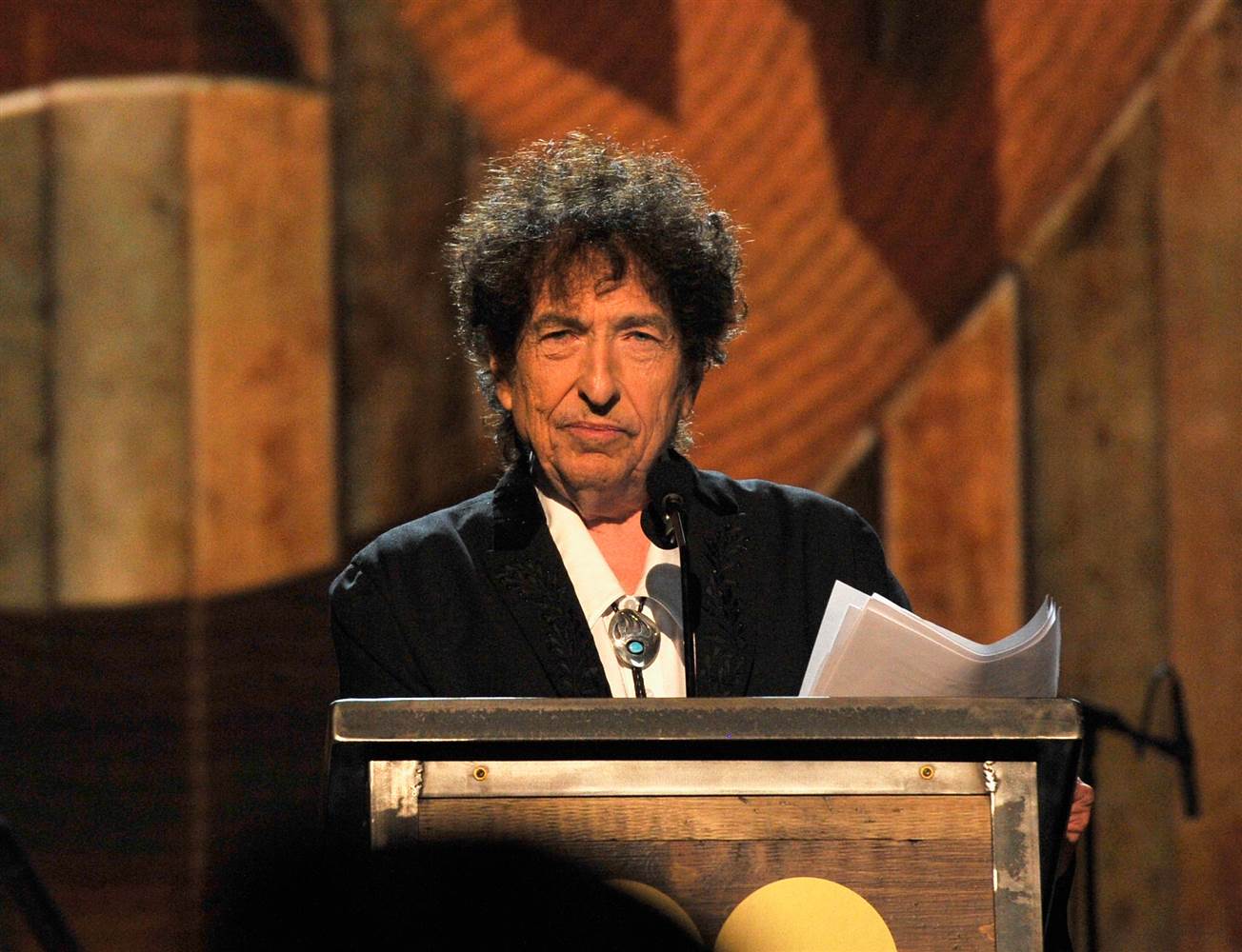
An Orthodox Cross Rises Over Paris
The visit of His Holiness the Patriarch of Moscow and All Russia to Paris for the consecration of the Holy Trinity Cathedral, built on the bank of the River Seine, is an event which cannot be overestimated.
Both the church, and the Orthodox spiritual and cultural architectural complex, stand in splendour on the Quai Branly, only a few steps from the Eiffel Tower. The principal architectural concept of this complex (as we wrote earlier) belongs to the French architect, Jean-Michel Wilmotte, who found a compromise between modern aestheticism and the radical classicism of the Russian golden domes. Parisian passers-by cry out in delight – the whole building is a complete success in its harmony and its restraint. And we rejoice that an Orthodox cross now rises above Paris.
Unlike France, and Western Europe generally, spirituality is inseparable from culture in Russia. Spirituality penetrates culture and culture penetrates spirituality. We mean the spirituality which characterizes Christian culture, civilisation and its values. As an institution, the Church is only a part of the whole, but an integral part, without which the whole does not and cannot exist.
Our Orthodox spiritual and cultural centre on the Quai Branly in Paris is a brilliant example of this very postulate.
